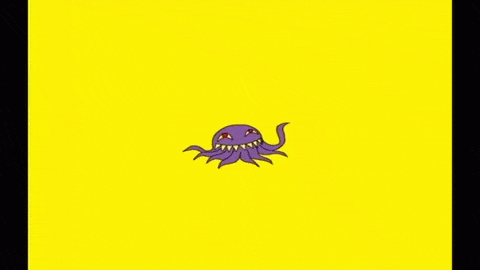Its quite easy if you address the issue of the time travel itself and the idea that the sundering happened twice.
There is a time-line where the events happened without us being in Elpis, and thus giving future information. Things happen as they were shown in Shadowbringers, where there was a fight and the Sundering happens. Time spirals into the story of the 8UC.
Then Graha goes back in time and skips out on his reality and changes history, leading to us going back in time and changing history again which in turn creates a paradox. The paradox is us going back in time at a set point and meddling at Elpis and giving Venat foreknowledge on the future. The paradoxical time loop converges back when you go and defeat Hydaelyn.
Thread: Tales from the Dawn
-
09-01-2022 02:06 AM #181Player

- Join Date
- Oct 2013
- Location
- U'ldah
- Posts
- 320
- Character
- Lumei Asuran
- World
- Midgardsormr
- Main Class
- Pugilist Lv 90
(1)
-
09-01-2022 02:06 AM #182
The difficulty now is that they obviously know (as shown by the Omega quests) that at least some people came away with that interpretation. I'm sympathetic to the idea that the Sundering is a very tangled knot that they don't want to unravel lest it unravel Endwalker as a whole, but as I said earlier, the way past that is to show her taking some of the steps people assume she didn't take (or softening the Sundering by showing us the aftermath wasn't what we thought it was).
(4)
-
09-01-2022 02:22 AM #183Player

- Join Date
- Nov 2017
- Posts
- 14,043
- Character
- Aurelie Moonsong
- World
- Bismarck
- Main Class
- Summoner Lv 90
I disagree on that. My particular theory pre-Endwalker was that – taking a different approach to the exact nature of the primals, making them more "AIs programmed by their creators" – Venat's faction was concerned about the long-term effects of using a purely dark-aspected primal as the will of the star, and created Hydaelyn as a light-aspected addition to balance it out. The clash between those two primals following their respective "programs" meant that Zodiark was trying to be the complete will of the star while Hydaelyn was trying to occupy part of it, Hydaelyn interpreted that as Zodiark overwhelming the balance, responded by pushing him out entirely and that caused the Sundering. Nobody's deliberate choice, just a badly programmed AI, and Venat (if she were still aware at that point and not reduced to primal aether-fuel) would be as horrified at the result as everyone else.
Specifically within Endwalker, I've written before that I think it would have been much more sensible for Venat to lose her memory along with the others – but even if she still has that foreknowledge then in a situation like I was picturing I don't think it would make much difference. In this alternate telling she well might have rejected the prospect of the Sundering and is working to find a solution that doesn't require her to go to such drastic lengths. Perhaps she thought she found one, only to see it all blow up and play out that way after all.
Regardless of the exact scenario that could be written instead of what we got, I don't believe it would need a substantial rewrite at all. The only thing affected is the details of that one vision we have in the rift.(1)
-
09-01-2022 02:29 AM #184Player

- Join Date
- Nov 2017
- Posts
- 14,043
- Character
- Aurelie Moonsong
- World
- Bismarck
- Main Class
- Summoner Lv 90
That doesn't make sense. G'raha only changed history as far back as he travelled, which was only to the point shortly after the Warriors of Darkness returned to the First and halted the Flood. He can't have altered events in Elpis by doing that.
The events at Elpis only need to happen once. They lead to the Sundering, the Sundering leads to history as we know it and onwards into the 8UC timeline, but the end result of G'raha time-travelling interference means that at the same time there is already the second path of time where the calamity is averted. We travel from that branch of time back to Elpis, inadvertently setting off the chain of events.
---
EDIT: I knew I should have put in the full argument here before I hit my post limit, but I didn't want to derail the thread into Aurelie's Regular Lengthy Thoughts on Time Travel. And now here I am posting ever-longer responses that aren't being read by the people I'm quoting.
Edit edit: everything below I wrote into this post but will now repaste further down the thread.
The time loop in Shadowbringers does not require our 8UC counterpart to travel back to Elpis, because the events in Elpis sit outside of the span of time altered by G'raha's actions.
All that matters in the 8UC timeline is that the Sundering happened in the past.
The end result of Shadowbringers is that the 8UC timeline is bypassed and the Elpis time loop continues along the "new" timeline that, from a whole-of-time viewpoint, has always existed alongside the 8UC timeline. If you are tracing this timeline, there is never a point where we die in the calamity, and this not-dying version of our timeline leads onward to Endwalker and our trip to Elpis.
G'raha's actions are necessary to create the path, but the result is that there is never a time where the path is not there.
There was only one WoL who travelled to Elpis, and it was always only us.
Partly correct, but only from G'raha's personal experience.
From memory, the stated time that G'raha was awoken in the future was 200 years forward, and in travelling back in time (and across to the First) he arrived shortly after the Flood of Light occurred. In the First, that was about a hundred years before we arrived there, but then you have time variation on top of that.
From the events of post-Heavensward we know exactly when the Flood was happening in Norvrandt, because it was the time when the Warriors of Darkness came to the Source. Not a hundred years ago, but probably less than a year before the events of Shadowbringers occur by our perspective.
I don't believe the jump between shards had anything to do with how time travel works any why he successfully altered events.
My theory is that what made the difference is that he is trying to change a specific historical event. He knows exactly how it happened and when it happened and why. By altering circumstances so it is impossible for that known event to take place, he creates a situation that cannot lead to the future he travelled from, and so a second branch of time forms to house this altered situation.
By contrast, we can't do anything in Elpis because we have no idea of the specifics, so there's nothing we can do to create a similar contradiction.
We became part of events by going back in time, but that isn't the same thing as changing them. There still only needs to be one version of events at Elpis.(1)Last edited by Iscah; 09-01-2022 at 10:44 AM.
-
09-01-2022 02:30 AM #185
-
09-01-2022 02:37 AM #186
-
09-01-2022 02:40 AM #187Player

- Join Date
- Oct 2013
- Location
- U'ldah
- Posts
- 320
- Character
- Lumei Asuran
- World
- Midgardsormr
- Main Class
- Pugilist Lv 90
If Graha does not go back in time, and the events of Shadowbringers never happen, we live within the 8UC timeline, in which WE DIE. If we die at that point in time (the end of Stormblood) we are not ALIVE to go back in time to warn Venat and have our adventures in Elpis. Remember one of the biiiiiiiiiiiiiiig reasons the 8UC timeline is the "bad-end" is because we the player character, no longer exist, having been killed off.
Thus because Graha goes back in time, to an alternate universe, he allows us to live. By allowing us to live we eventually go back in time to Elpis. No Graha, no Elpis.
Yet the sundered world EXISTS. So because the sundered world exists, there had to have had two parallel sunderings. One where we meddled and one where we did not because we were dead and couldnt go back in time to meddle.(0)
-
09-01-2022 02:47 AM #188
Yes, because of the nature of FFXIV as an ongoing story, written piece by piece, and one that's obviously been historically very receptive to feedback and has adjusted itself on the fly to it, there is another option besides the ones Iscah outlined earlier in the thread: rather than accept the intended story (as opposed to the written one) in order to be at peace with it, or reject the story outright, one can attempt to provide feedback by pointing out that whatever their intentions, the writers did do what they did, and what they did was frankly a textbook, point blank genocide apologism - and put forth your expectations and hopes that this therefore be addressed in some capacity. Because I still believe the writers did not actually intend to do this, with the understanding that Weird Unintended Things can indeed happen in such a massive collaborative project under such incredible pressure and time crunch, I also still want to give them a chance to re-evaluate what happened in their storytelling in Endwalker and provide more room to see if they have anything more to say about it now after the fact.
If I truly thought the only options here were to "pretend what was written was not what was written" or "walk away," I would have chosen to shrug and walk away by this point. But because I do want to have faith in this game and what I feel have been good-faith efforts to listen and improve from the team up until this point, I don't want to just give up. And signs, honestly, have been pointing to that they have been listening in some capacity in this regard - although that's led us to the current very strange moment that Lurina has noted numerous times, where it feels like we're still caught between "yeah we're kind of acknowledging this was indeed a genocide (one fueled by ideological Social Darwinism, no less) and Venat was no better than the Ascians, and just as guilty of incredible evil" and "Venat is still our benevolent mother-goddess heroine and you're supposed to love her!" It feels like a very unusual and very specific storytelling crossroads.(14)Last edited by Brinne; 09-01-2022 at 02:50 AM.
-
09-01-2022 02:52 AM #189Player

- Join Date
- Oct 2013
- Location
- New Gridania
- Posts
- 5,465
- Character
- Hayk Farsight
- World
- Exodus
- Main Class
- Dark Knight Lv 100
Because Graha's time travel does not run on the same rules as normal time travel. Normal time travel sends you back on a linear time scale. Graha's also mixed space into the mix. Instead of just going back in time on the Source, which would have been a case of "can't change the past," he crossed space as well as time onto the First, a place where he doesn't/shouldn't exist. This breaks outside of the normal rules of time travel, which allowed him to change how things occurred. We could get into the nitty gritty about how that works (let's not for our own sakes) considering the Sundering first needed to take place, but it's going to be quite a few paradoxes.
(1)
-
09-01-2022 03:02 AM #190




 Reply With Quote
Reply With Quote












